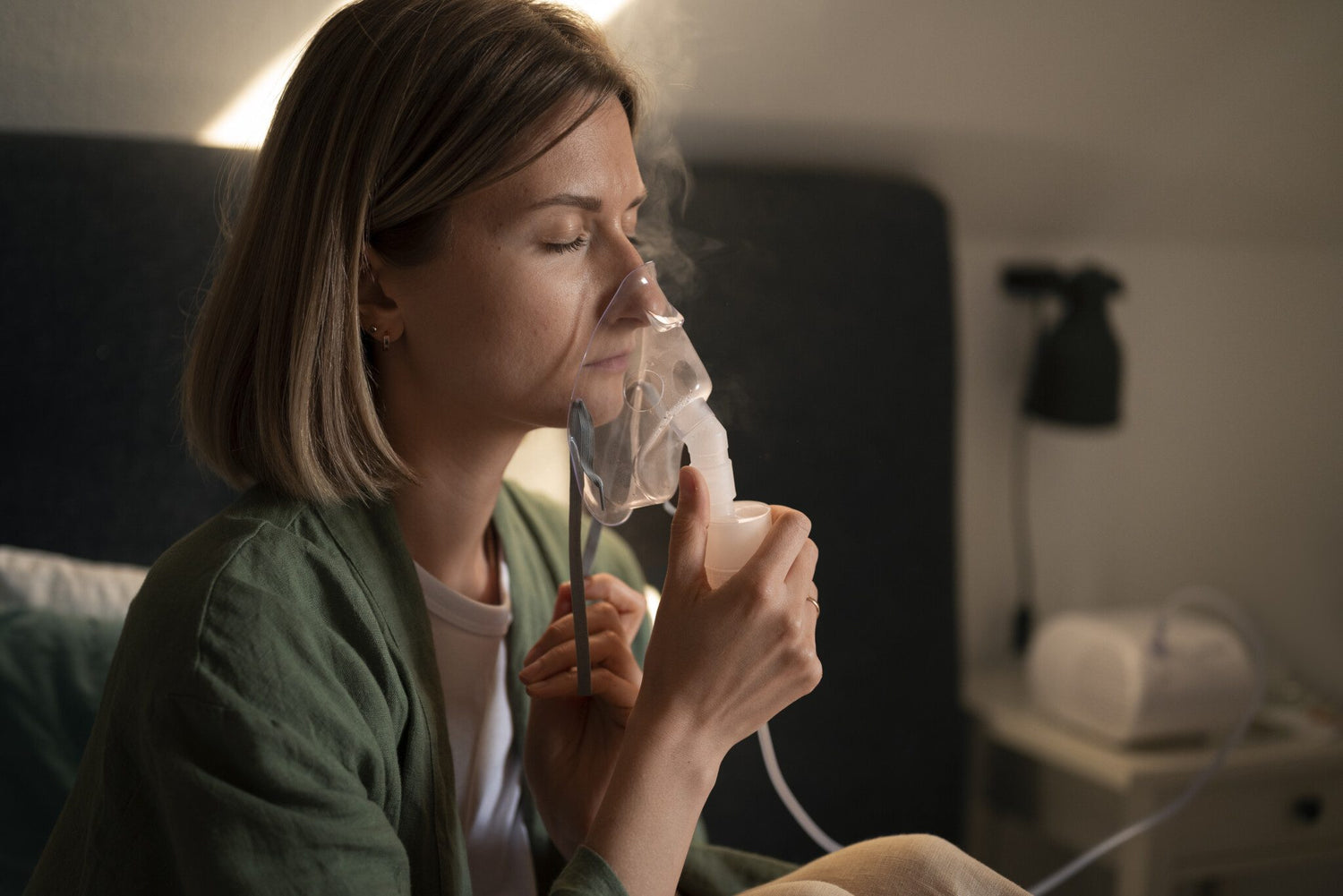The science behind medical cannabis: how it works in the body
Medical cannabis is no longer a fringe treatment in Australia—it’s a growing part of mainstream healthcare. Since legalisation in 2016, access to medical cannabis has rapidly expanded. With conditions like chronic pain, anxiety, and insomnia among the most commonly treated, it’s understandable why people would turn to medical cannabis as an alternative when traditional/conventional treatments haven’t worked for them.
Before diving into the positive effects of medical cannabis or understanding its potential side effects, it’s important to grasp how it works in the body. This blog post outlines the medical cannabis science and what people are interested to learn about medical cannabis and the medical cannabis science.
-
What is medical cannabis and how does it work?
-
Medical or medicinal cannabis refers to the use of the cannabis sativa plant and its components for therapeutic purposes. The two most well-known compounds in cannabis are:
- THC (tetrahydrocannabinol): The psychoactive component responsible for the "high".
- CBD (cannabidiol): A non-intoxicating compound known for its calming and anti-inflammatory properties.
These compounds are part of a broader group known as cannabinoids, which interact with a regulatory system in the human body called the endocannabinoid system. The endocannabinoid system, named after the cannabis plant, is found in the brain and throughout the body—in organs, tissues, glands, and immune cells. Discovered by researchers in the late 80s and gaining attention in the early 90s, these scientists founded our understanding of how specific brain receptors responded to cannabinoids—from both the cannabinoids found in the cannabis plant and from cannabinoids the body makes naturally.

What does the endocannabinoid system do?
The endocannabinoid system plays a key role in keeping your body in a state of balance—what scientists call homeostasis. It does this by regulating a wide range of functions like mood, sleep, appetite, and immune response. While balance is the end goal, regulation is the mechanism the endocannabinoid system uses to get balance—constantly adjusting signals to help your body respond to internal and external changes. Take inflammation for example: your body needs just enough inflammation to support healing, but not so much that it causes damage. The endocannabinoid system helps fine-tune that response so things don’t tip too far in either direction.
The endocannabinoid system helps regulate things like:
- Mood
- Sleep
- Pain sensation
- Appetite
- Immune response
Our bodies naturally produce endocannabinoids, which are similar to cannabinoids found in the cannabis plant. These interact with CB1 and CB2 receptors in the nervous system and immune system, respectively. When medical cannabis is consumed, its cannabinoids also bind to these receptors, helping to modulate symptoms like chronic pain or anxiety.
Based on just a little bit of the medical cannabis science we’ve shared so far: you can see why medical cannabis is gaining traction with patients and prescribers alike.
Medical cannabis regulation in Australia
In Australia, access to medical cannabis is tightly regulated by the Therapeutic Goods Administration (TGA). Healthcare practitioners who can prescribe medical cannabis in Australia are:
- Doctors
- Registered nurses
Doctors can prescribe medical cannabis under two different pathways: the special access scheme (SAS), and as an authorised prescriber (AP). Whereas registered nurses can only prescribe medical cannabis under the SAS Category B pathway.
The main difference from the patient point of view is the timing or speed of the TGA approval for authorised prescribers versus the SAS pathway. The SAS pathway is approved case by case, and the AP pathway is immediate as doctors who are authorised prescribers (AP) have applied and demonstrated their training and safety procedures. So, patients consulting with an authorised prescriber (AP), may gain more information and insights into the medical science and examples of success and side effects relevant to their condition/symptoms as a patient.
These schemes exist as medical cannabis is largely considered ‘unapproved’ because those products haven’t gone through full registration and testing for safety, quality, and effectiveness like conventional medicines must.
The TGA has only approved two cannabis-based medicines:
- Epidyolex—for severe, rare forms of epilepsy (Dravet syndrome and Lennox-Gastaut syndrome) in children.
- Sativex (nabiximols)—for muscle spasticity in multiple sclerosis.
These cannabis-based medicines are approved for specific conditions in specific patients, based on clinical evidence.
At a broader medical cannabis industry level, the Office of Drug Control (ODC) regulates the supply chain of medical cannabis (cultivation, production, and manufacture). Both the ODC and TGA are part of the Australian Government Department of Health and Aged Care.
Positive effects of medical cannabis on the body
When used under medical supervision, the positive effects of medical cannabis can be significant for patients managing chronic and treatment-resistant conditions. They include:
- Pain relief
- Anti-inflammatory properties
- Improved sleep
- Anxiety and mood stabilisation
- Muscle spasticity relief

Pain relief
Studies have shown the positive effects of medical cannabis promising results in relieving chronic and neuropathic pain, particularly in conditions such as fibromyalgia, arthritis, and cancer. Neuropathic pain or “neuralgia” relates to nerve damage that results from a condition or from direct injury to the nerves. The medical cannabis science shows that THC binds to CB1 receptors in the brain and nervous system, which can help reduce pain signals. CBD, meanwhile, can reduce inflammation, which then eases the underlying cause of discomfort.

Anti-inflammatory properties
Inflammation is at the root of many chronic conditions. The positive effects of medical cannabis in treating or targeting inflammation is naturally found in CBD’s anti-inflammatory effects and can help reduce the body’s immune response, providing relief in autoimmune diseases such as rheumatoid arthritis and inflammatory bowel disease.

Improved sleep
Sleep disturbances are a common issue among patients with chronic conditions. A chronic condition is a long-lasting health problem, usually defined by someone suffering for at least three months. When sleep disturbances (e.g. insomnia, interrupted sleep, or sleep deprivation) are added onto an existing chronic condition, the stress on the body and mind increases. Continued sleep disturbance can lead to impaired cognitive function, weakened immune response, and mood disorders like anxiety and depression—just to name a few side effects.
The medical cannabis science shows that THC-rich strains or full-spectrum oils/tinctures, can help:
- improve sleep quality
- reduce the time needed to fall asleep
- decrease the frequency and/or likelihood of waking up throughout the night.
The effects of medical cannabis in the form of oils and tinctures offer a precise dosage and give long-lasting therapeutic effects.

Anxiety and mood stabilisation
The positive effects of medical cannabis to treat anxiety and to stabilise mood issues is evident in medical cannabis products being prescribed for anxiety disorders as the second most common indication after chronic pain. The medical cannabis science shows that CBD has been found to reduce anxiety symptoms, particularly in social and generalised anxiety disorders. Some studies suggest it may act on serotonin receptors, similar to how antidepressants work—though without the same side effects that commonly come with antidepressant use.

Muscle spasticity relief
One of the earliest approved uses of medical cannabis by the TGA was for muscle spasticity in multiple sclerosis (MS). That drug, Sativex, can help relax stiff or spastic muscles, improving mobility and quality of life. The medical cannabis science behind Sativex involved robust clinical trials (randomised, double-blind, placebo-controlled trails) and gained approvals in other countries such as the UK in 2010 and was approved by the TGA in 2012—four years before the medical cannabis laws were introduced in Australia in 2016.
The medical cannabis science that added to the strong argument and case for Sativex’s approval is in the drug’s composition and dosage. Unlike many cannabis-based products, Sativex is a standardised, pharmaceutical-grade preparation with a 1:1 ratio of THC (tetrahydrocannabinol) and CBD (cannabidiol). This 1:1 ratio was seen to balance therapeutic benefits (like muscle relaxation and pain relief) with a lower risk of psychoactive or cognitive side effects (of the THC). This, and the oral spray product form allows for precise titration (a slow increase of medicine over time) gave regulators confidence in its safety, consistency, and efficacy.
What are the side effects of medical cannabis?
-
Like any medicine, medical cannabis is not without risks. Asking your health practitioner what the common or known side effects of medical cannabis are—particularly for how you consume your medical cannabis product e.g. smoking/vaping, edibles, and tinctures)—is vital for safe and responsible use.
While most people tolerate medical cannabis well, some report these common side effects:- Drowsiness or fatigue.
- Dry mouth.
- Dizziness.
- Changes in appetite or weight.
- Gastrointestinal discomfort.
- Increased heart rate.
- Impaired cognitive function.
The symptoms above are typically mild and often dose-dependent, especially when starting treatment.
In rare cases, particularly with high doses of THC or incorrect use, patients may experience:- Disorientation or confusion.
- Paranoia or anxiety.
- Psychoactive effects.
- Interactions with other medications (e.g. blood thinners or central nervous system “CNS” depressants).
-
Examples of blood thinners include aspirin and vitamin E supplements, which are available ‘over the counter’ without a prescription. When combining medical cannabis products with blood thinners, patients may bruise more easily, pass blood in stools and urine, and for menstruating women they may experience heavier periods.
The medical cannabis science shows that when medical cannabis products can cause side effects because its active compounds (THC and CBD) interact with cytochrome P450 enzymes in the liver, which potentially alters how other medications are metabolised. To read more about the side effects of medical cannabis, click here.
This is why consulting with specialist professionals you’ll find at Essence Dispensary is so important. The Essence Dispensary team can tailor our guidance, monitor side effects, and adjust dosage accordingly. And can chat through lifestyle factors that might create or make side effects worse.
How the effects of medical cannabis vary by person and product
The effects of medical cannabis can vary significantly between individuals—a concept that underpins Essence Dispensary’s approach to personalised patient care.
Several factors influence how someone responds to medical cannabis, including:
-
Delivery method: Vapourised flower offers rapid relief and easier dose titration (a slow increase of medicine over time). Oils and capsules may have a delayed but longer-lasting effect.
-
Individual metabolism, genetics, and other factors: Some people metabolise cannabinoids at faster or slower rates, which impacts the medicine’s duration and intensity. Genetics play a role in the liver enzymes such as CYP2C9, CYP2C19, and CYP3A4. And factors like age, sex, body fat, liver function, and other medications also play a role. For example, people with certain CYP2C9 variants may metabolise THC more slowly, leading to stronger or longer-lasting effects. This variability is why personalised dosing and the "start low, go slow" approach are often recommended in medical cannabis treatment plans.
-
Medical history and concurrent medications: Pre-existing conditions or medications can alter how medical cannabis is processed.
Essence Dispensary works with each patient to find best treatment approach to maximise the therapeutic benefits while minimising the risks.
How Essence Dispensary supports patients on their journey
At Essence Dispensary, we embrace a holistic approach to your wellbeing, recognising the interconnectedness of physical, mental, and emotional health in your journey to wellness.
We’re here to support you on your path to move forward. We work closely with our patients/customers to set and follow guidelines for each medical cannabis prescription and tailor our guidance in view of any side effects or concerns for a truly effective and personalised approach. Beyond medication, we explore your lifestyle, seeking opportunities for holistic improvements to optimise your overall wellbeing.
We always tell people to keep in mind that everyone is unique and as a result the experience may vary. Medical cannabis may not be for you, but we will help you to understand the key points on the medical cannabis science to help you explore and make an informed decision.
Our team understands the importance of using the right tools for efficient medication use. We know that using the wrong tools or using medication incorrectly can be a costly mistake in terms of time, money, and hope. We spend the necessary time with patients to demonstrate proper medication use techniques and assist them to set a positive mindset for their treatment regime. Contact us or visit us at our dispensary in Carina to learn more, book a consult with healthcare professional, and get your script filled. Essence Dispensary is your one-stop-shop for all your medicinal cannabis needs.
-
Final thoughts: is medical cannabis right for you?
-
Understanding the science behind medical cannabis is key to making informed decisions about its use. As this blog post has explored, medical cannabis interacts with the body’s endocannabinoid system to help regulate vital functions like pain, sleep, mood, and inflammation. Backed by growing clinical research and real-world evidence, the therapeutic benefits of cannabis—when prescribed appropriately—can offer significant relief for people managing chronic or treatment-resistant conditions. However, it’s equally important to be aware of potential side effects, interactions, and individual variability in response. That’s why personalised care, professional guidance, and a holistic approach that the Essence Dispensary team offers is essential. With the right support and education, patients can explore medical cannabis as a safe and effective part of their wellness journey.
Complete our questionnaire click here to see if you might be eligible to be prescribed medicinal cannabis for your condition or symptoms. If eligible, we can help arrange a consult with a health practitioner in-person at Essence Dispensary. Telehealth appointments are only available after your initial/first in-person consult.
